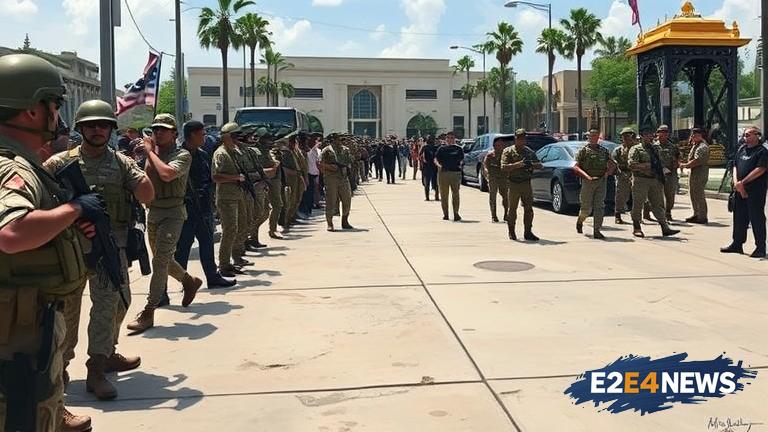The Pentagon has announced the withdrawal of National Guard troops from Los Angeles, following a period of deployment aimed at supporting local law enforcement in addressing immigration protests and property enforcement issues. The decision comes after a federal appeals court ruled that the deployment was unconstitutional, sparking controversy and debate. The National Guard was initially deployed to assist with crowd control and property protection during a series of protests and demonstrations in the city. However, the deployment was met with criticism from local officials, including California Governor Gavin Newsom, who argued that the presence of troops was unnecessary and potentially inflammatory. Despite the controversy, the Pentagon maintained that the deployment was necessary to ensure public safety and prevent property damage. The withdrawal of troops is seen as a significant development in the ongoing debate over immigration policy and the role of the military in domestic law enforcement. The decision is also likely to have implications for future deployments of National Guard troops in response to civil unrest. The protests in Los Angeles were sparked by a series of immigration raids and arrests, which were carried out by federal authorities in an effort to enforce immigration laws. The raids were widely criticized by local officials and community leaders, who argued that they were heavy-handed and targeted vulnerable populations. The deployment of National Guard troops was seen as an escalation of the situation, and was widely condemned by civil liberties groups and immigrant advocacy organizations. The federal appeals court ruling that the deployment was unconstitutional has been hailed as a major victory by critics of the administration’s immigration policies. The ruling is likely to have significant implications for future deployments of National Guard troops in response to civil unrest, and may limit the ability of the federal government to use military force in domestic law enforcement situations. The withdrawal of troops from Los Angeles is also seen as a significant development in the ongoing debate over the role of the military in domestic law enforcement. The decision is likely to be welcomed by local officials and community leaders, who have argued that the presence of troops was unnecessary and potentially inflammatory. However, the decision may also be seen as a setback for the administration’s efforts to enforce immigration laws and maintain public safety. The situation in Los Angeles remains complex and contentious, with ongoing debates over immigration policy and the role of the military in domestic law enforcement. The withdrawal of National Guard troops is likely to be seen as a significant development in these debates, and may have implications for future deployments of troops in response to civil unrest. The federal government has announced that it will continue to work with local law enforcement to address immigration issues and maintain public safety, but the withdrawal of troops is seen as a major concession to critics of the administration’s policies. The decision is also likely to have implications for the upcoming election, with immigration policy remaining a highly contentious issue. The situation in Los Angeles is likely to continue to be closely watched by policymakers and community leaders, as the debate over immigration policy and the role of the military in domestic law enforcement continues to evolve.
